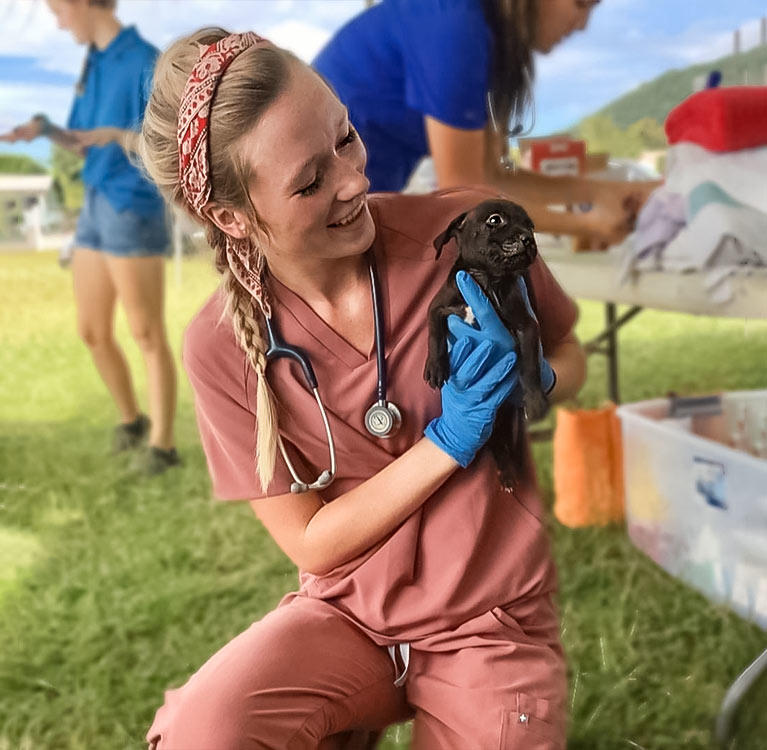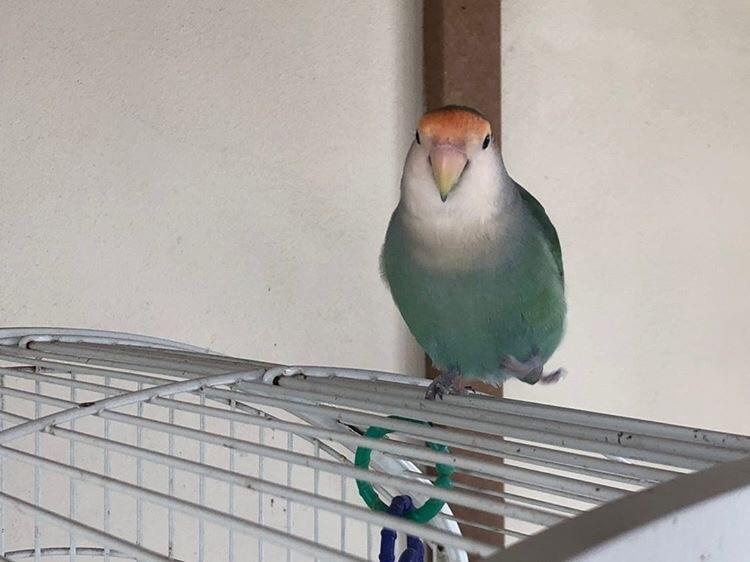Veterinary toxicology is a unique field of veterinary medicine focused on the relationship between toxicants (natural or synthetic compounds) and animal health and well-being. It’s a complex and layered field of study committed to improving animal welfare while also creating positive change in both environmental and public health.
What Is Veterinary Toxicology?
Toxicology explores the effects of harmful chemicals and substances on animals, humans, and the environment. Although the work of veterinary toxicologists leans more toward animals, they also explore the effects that such chemicals can have on human health. They’re well versed in the traits of different toxicants, how they’re absorbed into the body, the impact of different doses, side effects, and treatment options.
Depending on where a veterinary toxicologist chooses to work, they may:
- Identify the cause of poisoning in animals and animal populations.
- Train the next generation of veterinary toxicologists.
- Assess the safety and efficacy of new drugs and chemicals.
- Treat poisoned animals.
- Identify potential health risks to animals and more.
Veterinary toxicologists aim to prevent poisoning in animals but are prepared to diagnose and treat cases if they occur. They develop new ways to mitigate the effects of toxicants on different species to improve the safety and well-being of companion animals, food animals, exotic animals, and more. This includes building awareness of common household items pet owners may not immediately identify as dangers.
Companion animals are in the unique position of being exposed to items, foods, and substances they wouldn’t encounter in the wild. Veterinary toxicologists can educate pet owners on potential dangers hiding in plain sight, such as:
- Cocoa mulch
- Grapes and raisins
- Over-the counter drugs and prescription medications
- Insecticides and pesticides
- Macadamia nuts
- Mouse bait
- Play dough
- Plant materials
Why Is Veterinary Toxicology Important?
Although veterinary toxicologists' primary goal is to protect the safety and well-being of animals, their work also impacts environmental and public health. Those working for regulatory agencies like the U.S. Food and Drug Administration often evaluate the safety of new medications and additives in animal feed. This involves reviewing food ingredients prior to the product being available for consumption, animal food labels, and any claims being made about the food.
They can identify animal food contaminants, create emergency responses in case contaminated feed is being sold, and assist with food recalls. They may also identify the risks drug residue in food animals may pose to humans once consumed. This information can be used to create new programs and policies that can prevent or reduce the chances of negative outcomes.
Environmental contaminants, like pesticides or toxins produced by certain plants, can also pose a risk to both animal and public health. Animals living in mining areas, where the soil or air is rich in mercury, may be at risk of disease, reproductive issues, population decline, and other adverse effects. Veterinary toxicologists can identify which poisons animals may encounter simply due to their environment and help inform policy changes to mitigate these risks.
The impacts of these changes can simultaneously help improve animal, environmental, and public health.
How to Become a Veterinary Toxicologist
Interested in a career as a veterinarian who specializes in toxicology? In addition to earning your veterinary doctor degree, there is usually an additional four years of specialty training. This may include a four-year residency program in toxicology before passing the American Board of Veterinary Toxicology (ABVT) Certification Exam.
Admission requirements vary by school, so we encourage Doctor of Veterinary Medicine (DVM) applicants to review them carefully before applying. The first step toward becoming a veterinarian and, ultimately, a vet toxicologist is completing pre-veterinary studies and taking either the Graduate Record Examination (GRE) or the Medical College Admission Test® (MCAT®), as necessary. Additionally, you may be required to gain hours of experience or research. At Ross University School of Veterinary Medicine (Ross Vet), our applicants must gain at least 150 hours of experience or research before applying to our program.
While a typical DVM program lasts four years, Ross Vet offers an accelerated option. Our students can earn a DVM in as little as 3.25 years*, or 10 semesters. During this time, students should prepare to apply for licensure by taking the North American Veterinary Licensing Examination® (NAVLE®).
Those planning to specialize in veterinary toxicology will need to pass the American Board of Veterinary Toxicology (ABVT) certification exam. However, simply completing a DVM program isn’t necessarily enough to qualify applicants to sit for this exam. Applicants must first do one of the following:
- Graduate from an American Veterinary Medical Association (AVMA)-accredited program.
- Have an accreditation certificate from the Educational Commission of Foreign Veterinary Graduates of the AVMA.
- Be legally qualified to practice veterinary medicine in the United States, Canada, or another country.
Then they must meet the training and experience requirements set forth by the ABVT. Luckily, there are four ways an applicant can meet these requirements.
Four Ways to Qualify for the ABVT Certification Exam
The first way is to complete four years of specialized training in toxicology, including completion of an advanced degree. At least two of these years should be subsequent to receiving the DVM or equivalent degree and must be supervised by an ABVT diplomate. The program should cover courses such as, but not limited to, analytical chemistry, statistics, and toxicology.
They must also be the main author of two peer-reviewed publications, complete two funded research projects, or complete another board-approved activity.
Aspiring veterinary toxicologists must also have experience in one of the following areas:
- Teaching toxicology
- Conducting toxicological research
- Treating and diagnosing toxicology-related cases in veterinary clinics
The second way to meet the board’s requirements is to complete two years as a clinical practice veterinarian diagnosing and treating toxicology cases right after graduation. These vets must complete three years in a toxicology training or residency program, and/or in the teaching of toxicology, and/or toxicological research, and/or the practice of veterinary clinical and/or diagnostic toxicology, acceptable to the board.
As with the first option, they must be the main author of two accepted peer-reviewed articles, or complete two funded research projects, or complete another board-approved activity.
The third way to qualify for the certification exams is related to a candidate’s schoolwork and experience. They must be the main author of five accepted and peer-reviewed publications, or complete five funded research projects, or complete an equivalent activity approved by the board. They’ll need to provide evidence showing their training and experience is acceptable to the board’s standards to qualify for the exam.
The final way to qualify for the exam is to be a current diplomate in good standing with the American Board of Toxicology.
Once veterinarians have earned ABVT certification, they become a diplomate and can begin practicing as a veterinary toxicologist.
Protect Animal, Environmental, and Public Health as a Vet Toxicologist
By identifying and studying the effects of harmful substances, veterinary toxicologists stand at the forefront of preventing and mitigating adverse outcomes related to chemical exposure.
Becoming a veterinary toxicologist is an excellent way to make meaningful and lasting contributions to veterinary medicine, public health, and even the environment. It’s a fulfilling career path that provides opportunities to improve health outcomes in various species and engage in groundbreaking research.
Ready to take the first step toward becoming a veterinary toxicologist? Submit this form for more information or apply to Ross Vet's DVM program today!
*Students must successfully pass all courses prescribed in the Ross Vet preclinical and clinical curriculum without failing or repeating any courses and pass the North American Veterinary Licensing Examination® (NAVLE®) to complete their degree within this time frame. Comparison to U.S. school is based on a traditional four-year curriculum.







